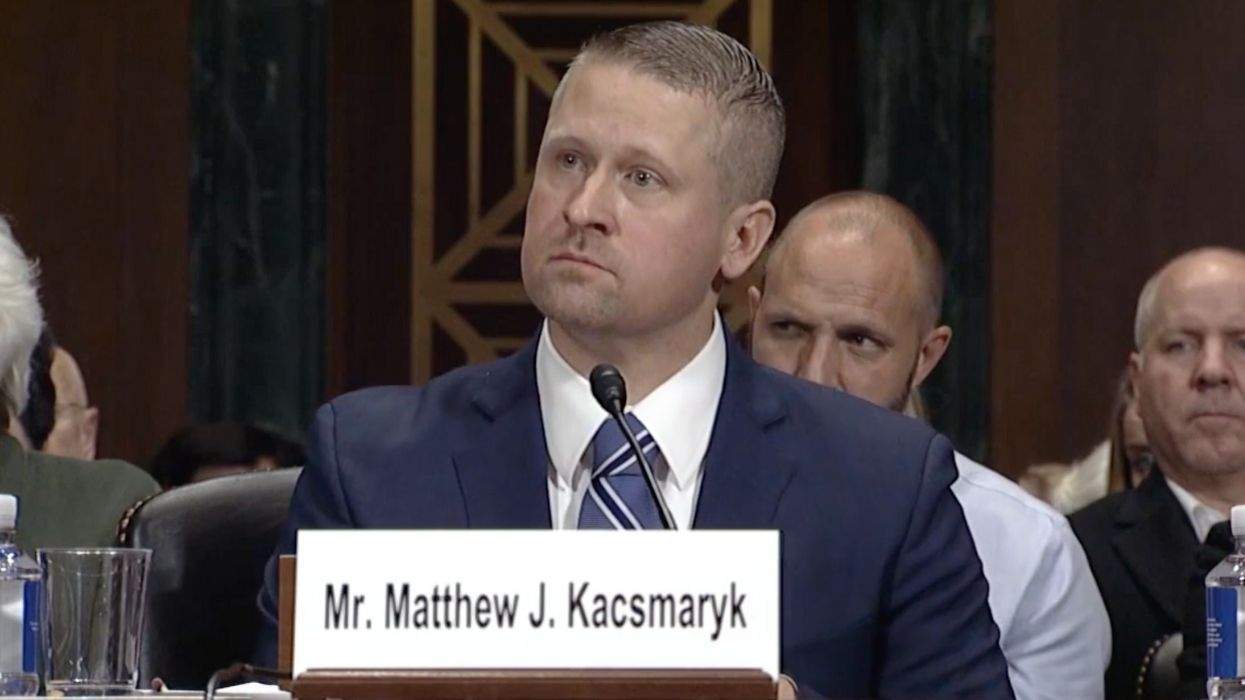The U.S. Court of Appeals for the Sixth Circuit has again allowed a ban on gender-affirming care for trans youth to be enforced.
The ruling came Monday in a case out of Kentucky. The same three-judge panel of the court had ruled similarly in a case from Tennessee, making the Sixth Circuit the first court to decide in favor of any gender-affirming care ban.
In the Kentucky case, a lower court had issued an injunction in June blocking the ban from enforcement while a lawsuit against it proceeds. But the judge in that case, U.S. District Judge David Hale, lifted the injunction in July after the Sixth Circuit ruled that Tennessee’s ban could go into effect. The Sixth Circuit covers Tennessee, Kentucky, Ohio, and Michigan. The seven trans minors and their parents who had sued over the ban filed an emergency motion with the appeals court to have the injunction reinstated.
But Judges Jeffrey Sutton and Amul Thapar, who had ruled that Tennessee’s ban could be enforced while the suit against it is heard, did the same for the Kentucky law. Judge Helene White dissented in both cases.
Sutton and Thapar held that those challenging the Kentucky ban are unlikely to prove that it violates the constitutional rights to due process and equal protection of the laws. They noted that the young people affected by the ban are given time to wean off puberty blockers and hormones, which they said lessens the harm done by the law. However, in Kentucky the law requires the weaning period to begin immediately, while Tennessee gives doctors and patients until next year to start it. This did not make a difference to the judges, though.
In Kentucky, unlike in Tennessee, some state officials disagree with the ban, and the judges recognized this, but this did not make a difference to the judges either; they said the state has the same interest in making and enforcing its laws.
Kentucky legislators passed the ban over Democratic Gov. Andy Beshear’s veto in May. It was part of a broad anti-LGBTQ+ bill that also bars public schools from teaching about sexual orientation and gender identity, restricts restroom use by trans students, and requires school personnel to out LGBTQ+ youth to their parents.
White, in her dissent, contended that the plaintiffs are likely to succeed on their constitutional claims. In addition, the fact that Kentucky trans youth must begin weaning immediately makes it more likely that they will suffer harm, she wrote. “I would lift the stay [of the injunction] at least with regard to those who were undergoing the now-banned treatments when the law took effect,” she explained.
The Kentucky case is known as known as Doe v. Thornbury. The plaintiffs are represented by the American Civil Liberties Union of Kentucky, the National Center for Lesbian Rights, and Morgan, Lewis & Bockius LLP. The Advocate has sought comment from the lawyers but has yet to receive a response.
The Sixth Circuit court is one of the most conservative appeals courts in the nation. If it and other courts eventually rule differently on whether bans on gender-affirming care are unconstitutional, it could result in a case going to the U.S. Supreme Court. The high court’s 2015 ruling in favor of marriage equality in Obergefell v. Hodges came in a case out of the Sixth Circuit.
Gender-affirming care bans have been temporarily blocked (while cases are heard) in Alabama, Florida, and Indiana because federal judges believed that those who are challenging them are likely to prove unconstitutional discrimination, and a judge in Arkansas has gone further by striking down that state’s law, the first ruling on such a law’s merits. In a suit in Oklahoma, the state and the challengers have agreed that the law will not be enforced while the case proceeds.















Charlie Kirk DID say stoning gay people was the 'perfect law' — and these other heinous quotes
These are some of his worst comments about LGBTQ+ people made by Charlie Kirk.